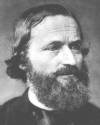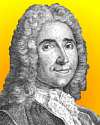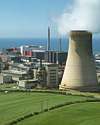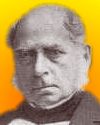Click to open this Newsletter in your browser


 If you enjoy this newsletter, the website, or wish to offer encouragement or ideas, please send feedback by using your mail reader Reply button.
If you enjoy this newsletter, the website, or wish to offer encouragement or ideas, please send feedback by using your mail reader Reply button.
Your click on a Facebook, StumbleUpon, or other social button on the site webpages is also a welcome sign of appreciation. Thank you for using them. To find citations for quotations go to the corresponding webpage by clicking on the “quotes” balloon icon. Sources for the thumbnails appear on today’s webpage with the corresponding item.
© This newsletter is copyright 2020 by todayinsci.com. Please respect the Webmaster's wishes and do not put copies online of the Newsletter — or any Today in Science History webpage. (If you already have done so, please remove them. Thank you.) Offline use in education is encouraged such as a printout on a bulletin board, or projected for classroom viewing. Online, descriptive links to our pages are welcomed, as these will provide a reader with the most recent revisions, additions and/or corrections of a webpage. For any other copyright questions, please contact the Webmaster by using your mail reader Reply button.
--
If you do not want to receive any more newsletters, Unsubscribe
To update your preferences and to unsubscribe visit this link

Feature for Today

On 17 Oct 1887, Gustav Robert Kirchhoff died, who contributed to the theory of spectrum analysis. That his name appears in an introductory physics text, indicates that his contributions were significant. Reading this Memoir of Gustav Robert Kirchhoff (1888) will give you an overview of this scientist and his work.
Book of the Day

On 17 Oct 1956, the Queen opened Calder Hall, the first gas-cooled and Britain's first nuclear power station in the shadow of the massive chimneys of the plant where explosives were made for Britain's first atomic bomb. Today's book pick is: Calder Hall - The Story Of Britain's First Atomic Station, by Kenneth Jay.
It is available from Amazon, typically about Used from $10.95. (As of earlier time of writing - subject to change.)
Quotations for Today
 | History in its broadest aspect is a record of man's migrations from one environment to another. |
 | Lately we have been getting facts pointing to the “oceanic” nature of the floor of so-called inland seas. Through geological investigations it has been definitely established that in its deepest places, for instance, the Caribbean Sea and the Gulf of Mexico, the Earth's crust is devoid of granite stratum. The same may be said quite confidently about the Mediterranean and the Black Sea. Could the interpretation of these data be that inland seas were the primary stage of the formation of oceanic basins? |
 | When I'm asked about the relevance to Black people of what I do, I take that as an affront. It presupposes that Black people have never been involved in exploring the heavens, but this is not so. Ancient African empires - Mali, Songhai, Egypt - had scientists, astronomers. The fact is that space and its resources belong to all of us, not to any one group. |
Quiz
| Before you look at today's web page, see if you can answer some of these questions about the events that happened on this day. Some of the names are very familiar. Others will likely stump you. Tickle your curiosity with these questions, then check your answers on today's web page. | |
| Births | |
 | Mae C. Jemison, born 17 Oct 1956, is an American physician and the first African-American woman in space. Jemison holds degree in chemical engineering (1977) and a Doctor of Medicine degree (1981). Before she became an astronaut, Jemison worked as a doctor in West Africa. In what decade did she fly in space? |
| Deaths | |
 | A French scientist (1683-1757) was active in various fields, and the foremost entomologist of the early 18th century. His name is applied to a thermometric scale he devised. Can you name this scientist's scale? |
 | Gustav Kirchoff (1824-1887), working with the chemist Robert Bunsen, established the theory of spectrum analysis which he applied to determine the composition of the Sun. He remains known to science students for a pair of well-known electric circuit laws (1845) used in introductory physics problems. What is Kirchoff's Current Law? |
| Events | |
 | On 17 Oct 1956, the Queen opened Calder Hall, Britain's first nuclear power station in the shadow of the massive chimneys of the plant where explosives were made for Britain's first atomic bomb. What is the name of the explosives plant? |
 | On 17 Oct 1855, a steel-making process was patented by Sir Henry Bessemer, a British inventor and metallurgist. His patent was for a method of making steel by blasting compressed air through molten iron. What major impurity was removed by using this method? |
Answers
When you have your answers ready to all the questions above, you'll find all the information to check them, and more, on the October 17 web page of Today in Science History. Or, try this link first for just the brief answers.
Fast answers for the previous newsletter for October 16: Robert Stephenson • the study of possible extraterrestrial life • ARPANET • decade containing the year 1951 • inhaled from a blown glass flask.
Fast answers for the previous newsletter for October 16: Robert Stephenson • the study of possible extraterrestrial life • ARPANET • decade containing the year 1951 • inhaled from a blown glass flask.
Feedback
 If you enjoy this newsletter, the website, or wish to offer encouragement or ideas, please send feedback by using your mail reader Reply button.
If you enjoy this newsletter, the website, or wish to offer encouragement or ideas, please send feedback by using your mail reader Reply button. Your click on a Facebook, StumbleUpon, or other social button on the site webpages is also a welcome sign of appreciation. Thank you for using them.
Copyright
© This newsletter is copyright 2020 by todayinsci.com. Please respect the Webmaster's wishes and do not put copies online of the Newsletter — or any Today in Science History webpage. (If you already have done so, please remove them. Thank you.) Offline use in education is encouraged such as a printout on a bulletin board, or projected for classroom viewing. Online, descriptive links to our pages are welcomed, as these will provide a reader with the most recent revisions, additions and/or corrections of a webpage. For any other copyright questions, please contact the Webmaster by using your mail reader Reply button.
--
If you do not want to receive any more newsletters, Unsubscribe
To update your preferences and to unsubscribe visit this link
Executive Real Estate Business Class
-
"It was like a man with wings. It wasn't like anything you'd see on TV or in a monster movie." ...
Powered by Blogger.
About the publisher
Search This Blog
Blog Archive
-
▼
2020
(1542)
-
▼
October
(171)
- The Compass: Iceland
- A Very Special Halloween Edition Of Our Scariest S...
- On This Day for October 31 - Luther's Ninety-five ...
- Newsletter for Saturday 31 October.
- CORONAVIRUS UPDATE: Why some people are supersprea...
- October 31: Martin Luther Challenges the Pope, Mic...
- PHOTOGRAPHY: Capturing America's pent-up energy to...
- The Terrifying Story Of The Mothman, The Little-Kn...
- The Roundup Top Ten from History News Network
- On This Day for October 30 - Henry Tudor crowned k...
- Newsletter for Friday 30 October.
- October 30: Tsar Nicholas II 'October Manifesto', ...
- ANIMALS: Will oil drilling spread across spectacul...
- On This Day for October 29 - Collapse of U.S. stoc...
- Newsletter for Thursday 29 October.
- October 29: End of China's One-Child Policy and Lo...
- YOUR WEEKLY ESCAPE: The science of the heebie-jeebies
- SCIENCE: Will every hurricane season be like this?
- The Latest News from History News Network
- On This Day for October 28 - Statue of Liberty ded...
- Newsletter for Wednesday 28 October.
- October 28: Fingerprints, Prohibition and the Blac...
- TRAVEL: When do Americans say they’ll fly again?
- Were vampire hunters real? Subscribe to find out.
- On This Day for October 27 - Anwar Sadat and Menac...
- Newsletter for Tuesday 27 October.
- October 27: China's Population Reaches 1 Billion a...
- HISTORY: Rush of early voters spurs talk of a record
- New This Week on History News Network
- On This Day for October 26 - Park Chung Hee assass...
- Newsletter for Monday 26 October.
- October 26: Beginning of the Red Cross and the Gun...
- FAMILY: When the best advice to your kids isn't yours
- On This Day for October 25 - English triumph at Ag...
- Newsletter for Sunday 25 October.
- October 25: The Great United Nations China Switch ...
- The Compass: Japan
- On This Day for October 24 - United Nations establ...
- Newsletter for Saturday 24 October.
- October 24: Two Great Historical Stock Market Crashes
- CORONAVIRUS UPDATE: How to fight the COVID-19 'inf...
- PHOTOGRAPHY: The best photojournalism of the decade
- What did Cleopatra look like? | Charles and Diana’...
- 11 Spooky Urban Legends Based On Terrifying True S...
- The Roundup Top Ten for October 23, 2020
- On This Day for October 23 - U.S. and French troop...
- Newsletter for Friday 23 October.
- October 23: US National Debt, an Old Fossil and th...
- ANIMALS: They were researching cheetahs. Iran call...
- Love the show Weird But True? Get more WBT with ev...
- Early Holiday Savings at the HISTORY Store
- Introducing the Britannica All New Kids' Encyclope...
- On This Day for October 22 - Cuban missile crisis,...
- Newsletter for Thursday 22 October.
- YOUR WEEKLY ESCAPE: These prehistoric footprints t...
- October 22: Greenwich Mean Time, the Cuban Missile...
- SCIENCE: Will the next generation fight a pandemic...
- On This Day for October 21 - Magellan's discovery ...
- The Latest News from History News Network
- October 21: Battle of Trafalgar, China Occupies Ti...
- TRAVEL: We found 50 stories in 50 states for ‘Amer...
- On This Day for October 20 - Opening of Sydney Ope...
- Newsletter for Tuesday 20 October.
- October 20: On This Day in History
- HISTORY: Why do we have the Electoral College?
- Join photographer Pete Muller for an online conver...
- New This Week on History News Network
- On This Day for October 19 - Surrender of Lord Cor...
- Newsletter for Monday 19 October.
- October 19: On This Day in History
- FAMILY: Letting kids take charge
- The lost heirs of Henry VIII
- On This Day for October 18 - Alaska Purchase appro...
- Newsletter for Sunday 18 October.
- October 18: French Protestants, The Alaska Purchas...
- The Compass: Portugal
- On This Day for October 17 - Mother Teresa awarded...
- Newsletter for Saturday 17 October.
- October 17: Burma Railway, OPEC Oil Embargo and Ra...
- CORONAVIRUS UPDATE: Who will be first in line for ...
- PHOTOGRAPHY: How COVID-19 changed our work
- The 25 Best Horror Movies Of All Time — And The Ch...
- This Week's Roundup Top Ten from History News Network
- On This Day for October 16 - Marie-Antoinette guil...
- Newsletter for Friday 16 October.
- October 16: Battle of Leipzig, Mao's Long March an...
- ANIMALS: The wildlife photo of the year
- Challenge grant: Help unlock important funds for w...
- On This Day for October 15 - Final conference on A...
- Newsletter for Thursday 15 October.
- October 15: Napoleon's Exile, the 1st Oral Contrac...
- YOUR WEEKLY ESCAPE: A murder mystery 430,000 years...
- SCIENCE: Will the next generation fight a pandemic...
- The Latest News on History News Network
- On This Day for October 14 - Battle of Hastings, D...
- Newsletter for Wednesday 14 October.
- Historic Trends in our time may be overcome with g...
- October 14: William the Conqueror, Robert the Bruc...
- The Embarrassing Final Moments Of 10 Revered Histo...
- TRAVEL: Does your wine taste like fire?
-
▼
October
(171)
-
Blogroll
-
About
HistoryFact
Copyright ©
Historian Fact | Powered by Blogger










0 comments:
Post a Comment